This week’s guest blog comes third in a series of blogs on the Sustainable Development Goals (SDGs) courtesy of Onna Malou van den Broek, second year doctorate student at King’s in the European & International Studies Department. Onna’s doctorate project titled: ‘The Political Payoff of Corporate Social Responsibility (CSR): CSR as a Determinant for Lobbying Success’, looks at the relationship between corporate sustainability and lobbying, holding a special focus on the SDGs.
Are you ready to rescue food? That is the motto of a Dutch restaurant called ‘InStock’. In response to the fact that one third of food production is wasted, they decided to create dishes solely with the unsold products from local supermarkets (1). Although we produce enough food to feed everyone, one in nine people (815 million) still go to bed on an empty stomach. After a period of decline, world hunger is on the rise again because of conflict, droughts and disasters.
The Targets: Ending Hunger and Achieving Food Security
The targets underpinning SDG 2 address the access to and production of food, while supporting rural development and protecting the environment. By 2030, all people must have access to safe and nutritious food, and all forms of malnutrition must be ended. Malnutrition can, amongst other things, lead to growth cessation for young children and unborn babies. Furthermore, the agricultural productivity and income of small-scale food producers must be doubled in a sustainable way. Importantly, food production must be able to maintain ecosystems and the diversity of seeds, plants and animals, whilst being resilient to climate changes. Additionally, investments in agricultural should be strengthened, trade restrictions corrected, and extreme food price volatility limited.
The Situation: From Hunger to Health?
If current trends continue, the targets set in SDG 2 will be largely missed by 2030 (2). Malnutrition sits awkwardly with the large amount of food waste and increased levels of overnutrition and obesity. There are large in-country and intra-country differences, most notably between developed and developing countries. In the later, almost 13 percent of the people are undernourished, with peaks in Asia (33 percent) and Sub-Saharan Africa (23 percent). Alarmingly, poor nutrition is still the case of nearly half of deaths in children under five. To increase food security, governments must top up their spending on small farms, crop diversity and women’s access to agricultural resources.
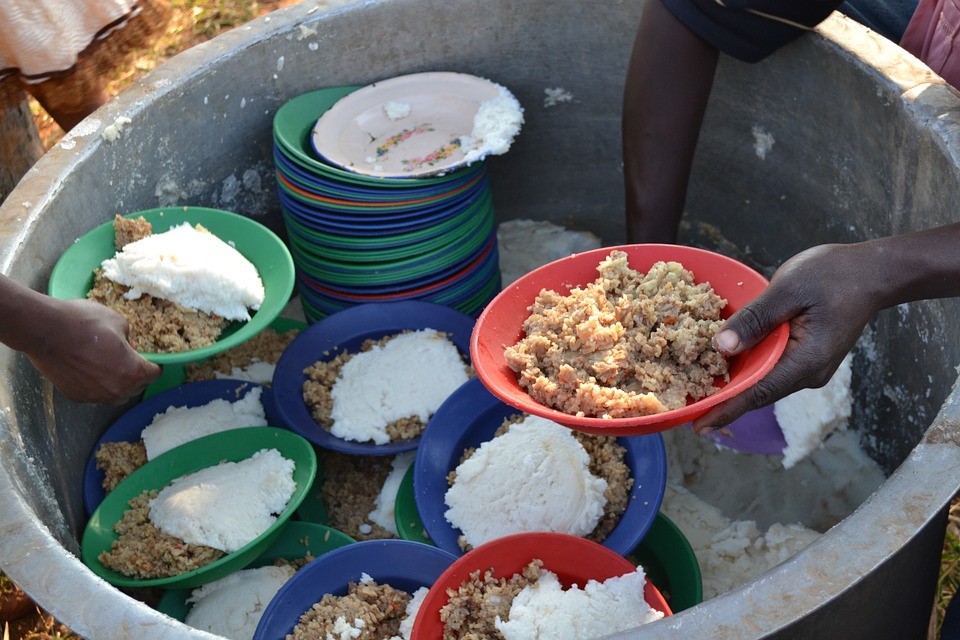
The food security crisis in Yemen
An occurrence of food insecurity which illustrates the link with conflict and climate change, is Yemen (3). Yemen is ravaged by ongoing levels of conflict between the Yemen Government, backed-up by Saudi-Arabia, and Al Houthi opposition forces. Although the food security crisis in Yemen has been building up since 2004, recently the country has started to receive media attention as the situation was officially classified as a famine. Depreciation of the Yemeni riyal (YER) has resulted in continuously increasing prices of food and fuel, mainly affecting vulnerable parts of the population. The situation has been worsened due to the Tropical Cyclone Luban and the second outbreak of cholera. Of the 29.3 million inhabitants, approximately 17.8 million are food-insecure with 8.4 million severe cases. Without international action, the prognosis is that the crisis will deepen even further…
Universities Creating Partnerships for Zero Hunger
A Conference at the University of Wageningen (4) posed the question: How can we create partnerships that can rid the world of hunger and malnutrition? Insights included that there is a need for a good institutional environment allowing farmers to practice sustainable agriculture. What is more, malnutrition is not only an issue in developing countries. Even though healthy food might be available, it can be affordable to certain communities or there is a lack of knowledge on how to differentiate between unhealthy and healthy options. Interestingly, Lawrence Haddad, director of the Global Alliance for Improved Nutrition, emphasized on making hunger uncomfortable for governments: “hunger and malnutrition are the result of choices about how we use our scarce resources. You can choose to use those resources differently”.
What can you do?
As a consumer, you have great power to increase food security. Use that power! A great initiative that empowers you to contribute to SDG 2, is the Chefs’ Manifesto Action Plan (5). Although targeted at restaurants, their lessons are relevant for everybody:
- Know your food. Find information, for example on: (a) the ingredients in your products i.e. are these grown with respect for earth and oceans? Are the products seasonal? (b) the supply chain i.e. how many intermediates are there? How fair are workers’ wages? and (c) animal-welfare of diary, meat and fish products i.e. do producers ensure good living conditions?
- Buy responsible. With the relevant knowledge, use your purchasing power to ensure sustainable production. Try to buy products from local producers through farmers markets, buy less meat and fish, eat seasonal fruit and vegetables and inform about the products at your favourite restaurant or lunch cafe.
- Nourish yourself, friends and family. Good nutrition starts with yourself! Ensure your meals are nutritious and share this habit with your environment. And whilst you’re at it, plan your meals so there is no need to waste.
References:
- Do you want to know more about this concept? Please visit their website here.
- If you want to read more about progress towards SDG 2, you can visit the UN website here or the UNSTAT website here.
- To get an overview of the humanitarian and food crisis in Yemen, I used the fact sheet of USAID, which you can read here.
- Luckily for you, the whole conference is captured by video and available here.
- You can read more on the chef’s manifesto here.



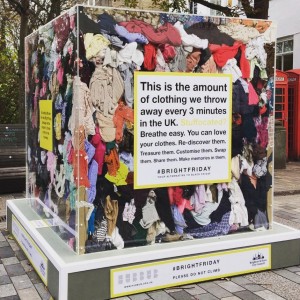
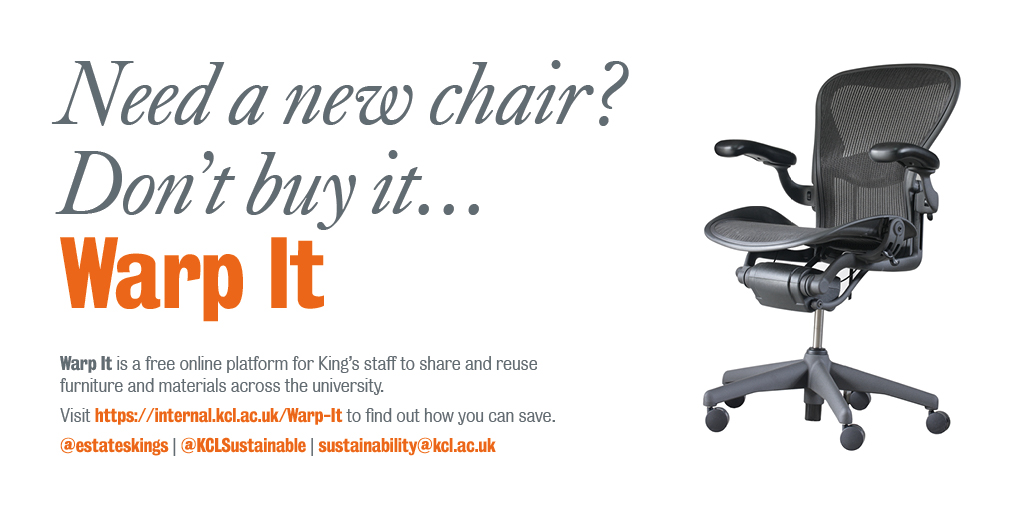
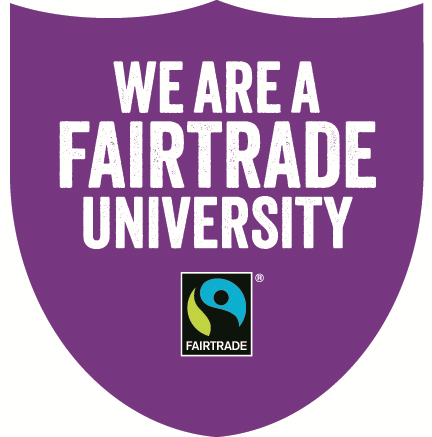
 At the moment, Warp It is only open to staff. If you are interested in signing up and start reusing furniture, please visit the
At the moment, Warp It is only open to staff. If you are interested in signing up and start reusing furniture, please visit the 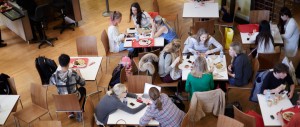



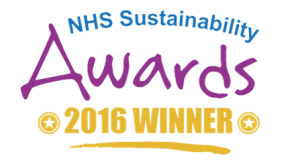
 st a quick reminder that we have the next Socially Responsible Investment Review Committee Forum tomorrow evening from 5pm to 7pm. It will be at S-2.08 at the Strand campus and will be an opportunity to hear what is happening in the world of King’s investment policy which involves ethical and sustainability issues such as fossil fuel companies. This is also a chance to have your voice heard on the topic.
st a quick reminder that we have the next Socially Responsible Investment Review Committee Forum tomorrow evening from 5pm to 7pm. It will be at S-2.08 at the Strand campus and will be an opportunity to hear what is happening in the world of King’s investment policy which involves ethical and sustainability issues such as fossil fuel companies. This is also a chance to have your voice heard on the topic.